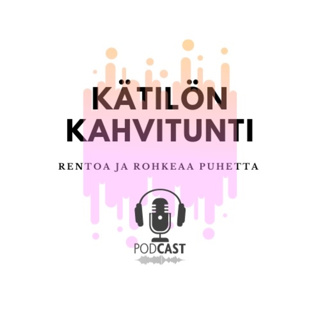
14 Bad Habits That Can Ruin Your Heart
Today, I’m going to cover the top unhealthy habits that can ruin heart health. 1. Believing everything you read on labels Food labels can be misleading. Even foods marketed as essential to a heart-healthy diet may have damaging health effects. 2. Staying out of the sun Avoiding the sun can lower your vitamin D levels. Vitamin D is one of the most important vitamins for supporting a healthy body, including cardiovascular health. 3. Excessive sitting A fascinating study shows a sedentary lifestyle may increase the risk of heart disease and stroke. 4. Overusing medication Consider working with a doctor who is open to natural alternatives for various conditions. 5. Snacking Snacking before bed ruins your ability to burn fat while you sleep. Fat burning occurs mainly at night! 6. Drinking too much water Drinking too much water while on a low-salt diet can dilute an important electrolyte: sodium. 7. Ignoring dental care Certain studies have found dental bacteria in arterial plaque. Tooth infections can also lead to health issues. 8. Mouth breathing Nose breathing may help you sleep better at night—good sleep is vital for heart health. 9. Exposure to microplastics Microplastics are everywhere and have become a big issue. It has been found that the average person has microplastics in their blood. 10. Feeling out of breath when exercising Feeling out of breath very quickly when exercising could be a sign of a heart issue you should not ignore. 11. Jet lag Jet lag dramatically affects sleep cycles and can lead to fluid retention. If you fly frequently, taking niacin may help, and vitamin D3 may also be beneficial for jet lag. 12. Excessive cardio without rest Sustained pulse rate exercise is hard on the heart and body. 13. Secondhand smoke exposure Secondhand smoke can increase the risk of heart attack by 25-30%. 14. Consuming refined foods Magnesium is one of the most important nutrients for the heart. But refined foods deplete magnesium. Along with avoiding these unhealthy habits, try incorporating cold immersion therapy, managing stress, and improving your sleep to promote a healthy heart and reduce your risk of a heart problem. You can also discover more about truly heart-healthy foods in my other podcasts. DATA: https://www.ncbi.nlm.nih.gov/pmc/arti... https://pubmed.ncbi.nlm.nih.gov/16095... https://pubmed.ncbi.nlm.nih.gov/2564129/ https://pubmed.ncbi.nlm.nih.gov/32899...
30 Syys 20249min

7 Foods That Destroy the Kidneys
Your kidneys are remarkable organs. But, they’re vulnerable to damage from various foods and substances, which can lead to serious health issues. 7 foods that destroy the kidneys: 1. Instant noodles Instant noodles often contain the preservative TBHQ, which is toxic to the kidneys. 2. Foods high in artificial dyes Foods like Skittles contain dyes that can wreak havoc on your kidneys. 3. Fried chicken The combination of high heat, seed oils, and breading in fried chicken can lead to glycation—a process that clogs everything up, especially in the kidneys. 4. Commercial bread Commercial bread is loaded with potassium bromate, a harmful chemical linked to kidney cancer. 5. Soda Soda contains phosphoric acid, which is harmful to the kidneys. It’s also high in sugar, which contributes to diabetes—the number one cause of kidney damage. 6. Agave syrup Often falsely marketed as healthy, agave syrup is high in fructose, which puts immense stress on the liver and kidneys. 7. Cereals Cereals are packed with refined sugar, seed oil, and refined starch. They also often contain glyphosate, a harmful pesticide. Kidney disease prevention is key. Avoid bad habits that damage the kidneys, like consuming the foods above, and focus on a diet that supports kidney function.
28 Syys 20247min

This Can Be DEADLY!
Today, we’re going to talk about the most important vitamin: vitamin D! There is a lot of misinformation about vitamin D. Vitamin D blood levels are not very well correlated with the vitamin D inside your cells. It’s also virtually impossible to get enough vitamin D from food. There are 2 different systems for vitamin D: one for calcium and bone and one for all the non-calcium functions of vitamin D, including the immune system, prostate, skin, gut, brain, and muscles. Hardly any of the vitamin D in your blood goes into this second system! Most research on vitamin D involves the calcium system of vitamin D and only 600 to 800 IU. This amount may be sufficient for bone health but not for the other functions of vitamin D. Barriers to vitamin D absorption that can lead to low vitamin D include the following: •Air pollution •Sunscreen/Avoiding the sun •Gut inflammation •Magnesium deficiency •Genetics •Latitude/Altitude/Season •Aging •Insulin resistance •Low cholesterol •No gallbladder A healthy person needs around 10,000 IU of vitamin D3 each day. If you have health concerns, you may need more. Bruce Hollis Interview: Your Body Is BEGGING For Vitamin D!! DATA: • Is Free 25OH Vitamin D The Next Gener... https://www.ncbi.nlm.nih.gov/pmc/arti...
28 Syys 20249min

The Benefits of Drinking Clove Water at Night
Today, we’re going to talk about the benefits of clove for health. Cloves have potent antibacterial, antifungal, anti-candida, and antiviral properties with virtually no side effects! Cloves can help numb tooth pain and eliminate microbes. They have been patented for use in mouthwash, toothpaste, and gingivitis treatment. Cloves can also increase bile flow and digestive enzymes. A study published in the World Journal of Dentistry found that clove oil worked faster, lasted longer, and was more effective for toothaches than benzocaine. Another study compared eugenol to hydrocortisone and found the effectiveness was equal to or greater in reducing skin swelling and redness. You can use cloves to make a salve or a liquid to drink before bed. It can be used for tooth pain, biofilms, muscle pain, joint pain, and more! Clove oil can be mixed with olive or coconut oil and massaged directly into the joints. You can also use clove oil to make a lip balm as a natural remedy for the herpes simplex virus. It can even be used as a mosquito repellent. Drinking clove water before bed can help you relax, detoxify the liver, and improve digestion. It can also be used for respiratory problems like bronchitis, mucus in the lungs, colds, coughs, and asthma. Clove water helps support cognitive function, a healthy heart, and healthy immune function. It’s a natural sedative, so it can be used as a sleep aid without the side effects of sleep medication. To make clove water, boil 4 to 5 cloves in one cup of water, lower the heat, and allow it to simmer for five minutes. Cover the water while it’s simmering to prevent the vapors from escaping. Allow the clove water to cool for one hour and consume it 30 minutes before bed. DATA: https://pubmed.ncbi.nlm.nih.gov/16530... https://www.ncbi.nlm.nih.gov/pmc/arti... https://www.ncbi.nlm.nih.gov/pmc/arti... https://www.researchgate.net/publicat... https://www.researchgate.net/publicat... https://brieflands.com/articles/jjnpp... https://www.sciencedirect.com/science...
27 Syys 20247min

The 7 Warning Signs of a Zinc Deficiency
Zinc is the 3rd most important nutrient and is involved with over 200 different enzymes. Zinc allows you to make glutathione, the most powerful antioxidant. It’s highly concentrated in the prostate and helps make sperm and testosterone. Zinc is in the part of the pancreas that produces insulin, and it is also in the hippocampus, the part of the brain responsible for memory. Zinc is vital for wound healing, decreasing gastritis, generating collagen, and hair regrowth. Here are 7 common zinc deficiency symptoms: 1. Night blindness 2. Low testosterone, estrogen, or progesterone 3. Diarrhea 4. Acne 5. Alopecia 6. Cataracts 7. Thymus gland shrinkage The thymus is the most important immune gland. It makes the T cells that control and coordinate every aspect of your immune system. T cells help to kill infection and cancer and help prevent autoimmune diseases. Professor Greg Fahy has conducted fascinating research about the anti-aging possibilities that can occur when you restore the thymus gland. If you can regenerate the thymus gland, you may be able to increase your lifespan by decreasing the risk of cancer and infections. In a rat study, a thymus from a younger rat was transplanted into an older rat. The rat experienced an increased lifespan and regrowth of the thymus. Rats given zinc had fully recovered thymus function and improved immune function. Zinc deficiency can be caused by the following: • Aging • Gut issues • Vegan/vegetarian diets • Alcohol • Sugar • Chronic stress • Medications When you take zinc, you should also take copper. Thymus extract can also be beneficial to the thymus gland. DATA: https://pubmed.ncbi.nlm.nih.gov/8582782/ https://pubmed.ncbi.nlm.nih.gov/8582786/
23 Syys 20247min

I Will Get Attacked for This...
Modern medicine is primarily influenced by big pharma and big food. The medical industry is also overspecialized, and nutrition and food therapy training is virtually nonexistent. Check out these 9 common medical industry lies! 1. You don’t need a gallbladder. The gallbladder stores bile salts that help you extract fats from the digestive system. If you don't have a gallbladder, you won’t be able to concentrate bile. 2. Statins have minimal side effects. Statins have major side effects and increase your risk for type 2 diabetes and liver damage. 3. Hypertension is caused by too much salt in the diet. Instead of trying to lower sodium, increase potassium. Focus on adequate potassium intake to support healthy blood pressure levels. 4. Low amounts of vitamin D will fix a deficiency. If you’re low in vitamin D, 600 to 800 IU will not be enough. You need around 10,000 IU every day. 5. Red meat causes cancer. Grass-fed red meat is one of the healthiest foods you can eat. It’s a high-quality protein source and contains all of the B vitamins, zinc, selenium, copper, iron, creatine, l-carnitine, coenzyme Q10, and glutamine. 6. Avoid saturated fats. Unsaturated fats are a much bigger problem. Dangerous seed oils and ultra-processed foods are full of unsaturated fats—not saturated fats. 7. Your weight is causing your health issues. Your weight is a symptom, not the cause of your problems. The root cause of your weight problems and the associated health issues is likely insulin resistance. 8. Plant-based diets are best. Doctors and dieticians often falsely claim that plant-based diets are cleaner. Most fake meat products contain many ultra-processed ingredients. 9. Hypoglycemia is a complication of diabetes. If you have hypoglycemia, you have too much insulin. Instead of focusing on lowering insulin, doctors will advise patients to eat glucose pills or candy if their blood sugars drop too low. DATA: https://www.sidley.com/en/insights/ne...
22 Syys 20249min

Research Reveals: This Repairs Nerve Damage
Can you guess the number one vitamin deficiency behind nerve problems like peripheral neuropathy? It’s a vitamin B1 deficiency! Vitamin B1 deficiency symptoms may include: • Nerve Pain (sciatica) • Tremors • Anxiety • ADHD, ADD, OCD, and psychosis • Racing mind or insomnia • Restless legs syndrome • Air hunger • Burning or numbness in the feet or hands • Problems with the autonomic nervous system • Vertigo • Vision problems Causes of vitamin B1 deficiency may include: • Alcohol • Refined carbs • Diabetes • Stress • Caffeinated tea (chronic consumption) • Raw fish • Sulfites • Phytic acid • Antibiotics Vitamin B1 is one of the best vitamins for nerve repair. Be sure to get your vitamin B1 from a natural source. Nutritional yeast is a great source of B vitamins. You can add nutritional yeast to your meals or take it as a supplement.
21 Syys 20246min

The BEST and WORST Forms of Magnesium
Not all magnesium supplements will provide the same benefits! Find out about the best magnesium supplements so you can experience the true benefits of magnesium. Today, I’m going to tell you about the best magnesium supplements and the worst! Magnesium is vital for the following: •Energy production •Vitamin D function •Vitamin K2 function •Preventing kidney stones •Heart health •Blood pressure •Preventing muscle cramps •Preventing migraines •Sleep Magnesium supplements contain different forms of magnesium. Let’s take a look at them, starting with the worst. 1. The worst magnesium - Magnesium oxide is the worst yet most common magnesium supplement. It only has a 4% absorption rate. It’s also very expensive! 2. Magnesium sulfate has a 10% absorption rate and a high laxative effect. It may help relax your muscles superficially. 3. Magnesium orotate has a 15% absorption rate. This form of magnesium can penetrate the cell and increase energy. Magnesium orotate also works as an antioxidant and supports the DNA. 4. Magnesium taurate has a 20% absorption rate and supports heart health, blood pressure, and the nervous system. 5. Magnesium lactate has a 25% absorption rate and is more gentle on the GI system. It supports the cardiovascular system and can improve energy. Magnesium lactate is often used topically, which may be beneficial for your muscles. 6. Magnesium citrate has a 30% absorption rate. It can help prevent kidney stones and is good for cardiovascular issues and blood pressure. It can also help with detoxification. 7. Magnesium malate has a 40% absorption rate. It’s beneficial for chronic fatigue syndrome and fibromyalgia. 8. Magnesium threonate has a 75% absorption rate. It supports cognitive function and is a good form of magnesium for sleep. 9. The best magnesium - Magnesium glycinate is the most absorbable type of magnesium. There are a lot of magnesium glycinate benefits. It’s gentle on the GI system, helps prevent muscle spasms, supports sleep and relaxation, and reduces stress. Magnesium glycinate may help relieve migraines and won’t interfere with other minerals. Consider taking 400 mg of magnesium glycinate each night as a maintenance dose. Double this for a therapeutic dose and take throughout the day.
20 Syys 20247min





















